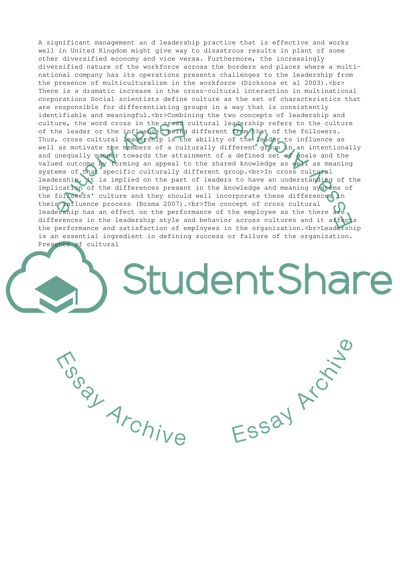Cite this document
(“The impact of cross cultural leadership on an employees performance: a Essay”, n.d.)
Retrieved from https://studentshare.org/business/1617442-the-impact-of-cross-cultural-leadership-on-an-employees-performance-a-comparative-study-of-uk-and-nigeria-using-a-case-of-royal-dutch-shell
Retrieved from https://studentshare.org/business/1617442-the-impact-of-cross-cultural-leadership-on-an-employees-performance-a-comparative-study-of-uk-and-nigeria-using-a-case-of-royal-dutch-shell
(The Impact of Cross Cultural Leadership on an Employees Performance: A Essay)
https://studentshare.org/business/1617442-the-impact-of-cross-cultural-leadership-on-an-employees-performance-a-comparative-study-of-uk-and-nigeria-using-a-case-of-royal-dutch-shell.
https://studentshare.org/business/1617442-the-impact-of-cross-cultural-leadership-on-an-employees-performance-a-comparative-study-of-uk-and-nigeria-using-a-case-of-royal-dutch-shell.
“The Impact of Cross Cultural Leadership on an Employees Performance: A Essay”, n.d. https://studentshare.org/business/1617442-the-impact-of-cross-cultural-leadership-on-an-employees-performance-a-comparative-study-of-uk-and-nigeria-using-a-case-of-royal-dutch-shell.


